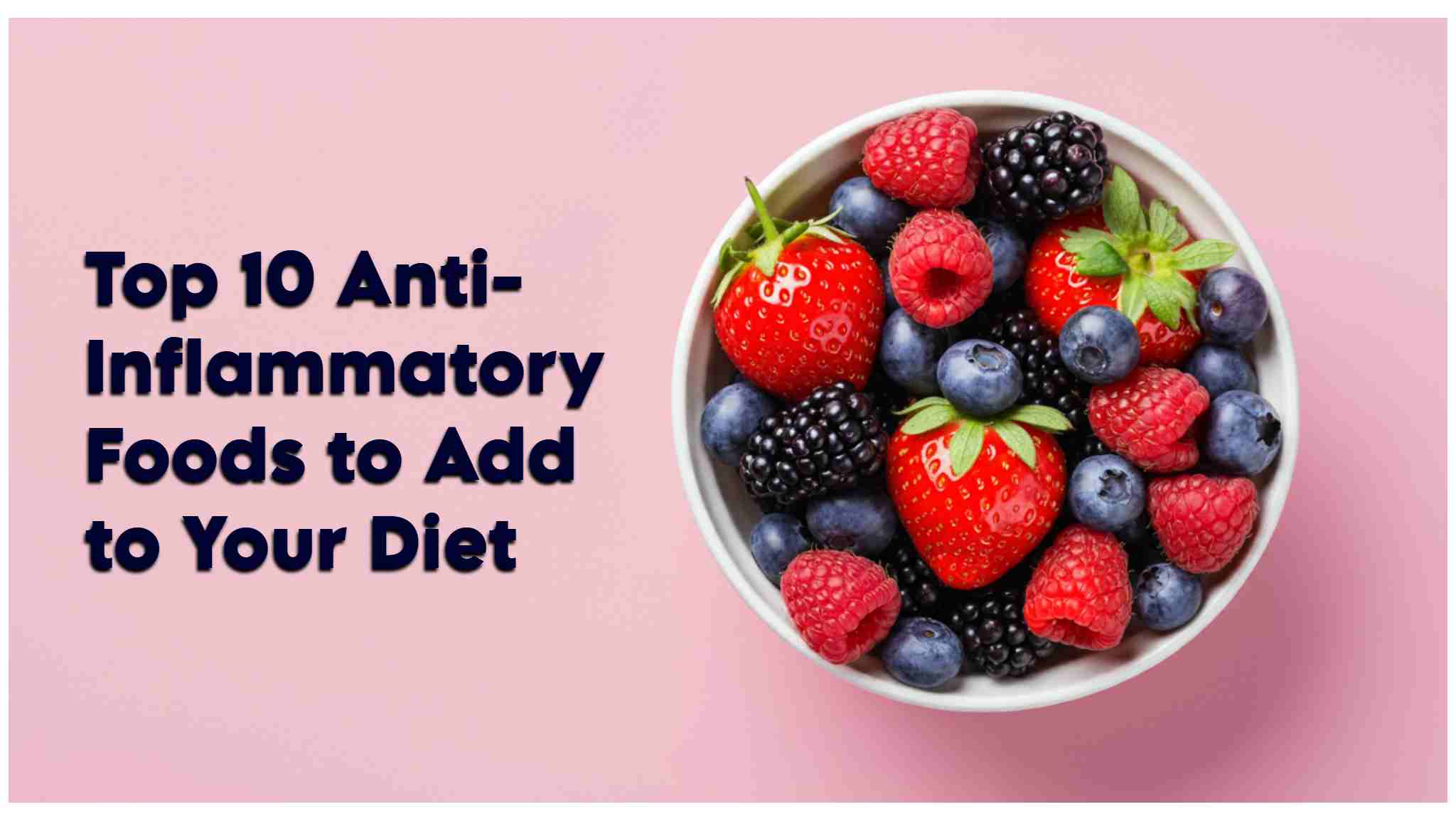Top 10 Anti-Inflammatory Foods to Add to Your Diet
I’ll be honest—there was a time when I didn’t pay much attention to how the foods I ate could impact my body beyond basic nutrition. It wasn’t until I started feeling sluggish and dealing with chronic inflammation symptoms, like joint pain and fatigue, that I began to explore the connection between diet and inflammation. What I found was both empowering and transformative: certain anti-inflammatory foods can work wonders for overall health. Whether you’re managing inflammation due to a specific condition or simply looking to feel your best, adding these foods to your diet can make a big difference.
Inflammation is a natural response by your immune system to protect against injury or infection. However, chronic inflammation can lead to health issues, including heart disease, arthritis, and autoimmune disorders. The good news? Anti-inflammatory foods are not only nutritious but also delicious, offering a proactive way to fight inflammation naturally.
Read Also: Seven (7) things they won’t tell you about growing up
1. Fatty Fish

Salmon, mackerel, and sardines are rich in omega-3 fatty acids, which reduce inflammation at the cellular level. Regularly consuming these fish has been linked to lower levels of inflammatory markers like C-reactive protein (CRP).
2. Leafy Greens

Spinach, kale, and Swiss chard are packed with antioxidants, vitamins, and anti-inflammatory compounds like polyphenols. These leafy greens are versatile and can be added to salads, smoothies, or sautéed dishes.
3. Berries

Blueberries, strawberries, and blackberries are small but mighty when it comes to fighting inflammation. Their anthocyanins, a type of antioxidant, help lower inflammatory responses while also protecting against oxidative stress.
4. Turmeric
This golden spice contains curcumin, a compound renowned for its potent anti-inflammatory properties. Adding turmeric to teas, curries, or even smoothies is an easy way to incorporate it into your diet.
5. Nuts

Almonds and walnuts are excellent sources of healthy fats and antioxidants. Their anti-inflammatory benefits are particularly helpful for heart health. A handful a day can make a noticeable difference.
6. Olive Oil

A cornerstone of the Mediterranean diet, extra virgin olive oil is rich in monounsaturated fats and oleocanthal, which has effects similar to anti-inflammatory drugs. Use it as your primary cooking oil or drizzle it over salads.
| Select What happens if you eat onions every day? | What happens if you eat onions every day? |
|---|
7. Tomatoes

Tomatoes are rich in lycopene, an antioxidant that reduces inflammation, especially in the lungs. Cooking tomatoes enhances their lycopene content, making tomato-based sauces or soups a great option.
8. Ginger

Ginger has been used for centuries in traditional medicine for its anti-inflammatory and digestive benefits. Add fresh ginger to tea, stir-fries, or juices to take advantage of its properties.
9. Green Tea
Known for its high levels of catechins, green tea is a powerful anti-inflammatory food. Drinking it regularly may help reduce the risk of chronic diseases and provide a calming ritual.
10. Dark Chocolate

Good news for chocolate lovers! Dark chocolate with a high cocoa content (70% or more) contains flavonoids that can reduce inflammation. A small square a day can satisfy your sweet tooth while offering health benefits.
Making Anti-Inflammatory Foods a Lifestyle
Incorporating these anti-inflammatory foods into your daily meals doesn’t have to be complicated. Start with simple swaps, like using olive oil instead of butter or snacking on a handful of nuts instead of chips. Combine foods for maximum benefit—for example, make a salmon salad with spinach and a turmeric dressing.
Remember, your diet is a powerful tool in reducing inflammation and promoting overall health. By prioritizing these foods, you’re taking an active role in improving your well-being—one meal at a time.



